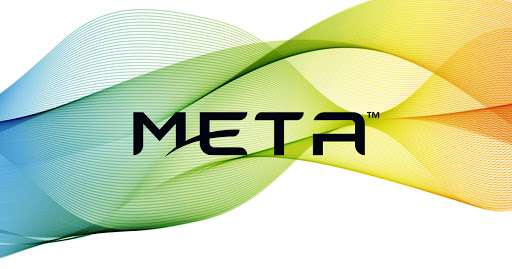Less than three months after Dartmouth-based Meta Materials said it was laying off 80 per cent of its workforce, the one-time unicorn has filed for bankruptcy.
Though the announcement did not appear on the company website, Meta on Friday filed for liquidity bankruptcy, according to the official Nasdaq news site. The company is seeking a Chapter 7 trustee to liquidate assets and settle debts, and all remaining employees have been laid off, said the report.
Meta, which trades on the Nasdaq and once boasted a market cap of US$2.2 billion, is now valued by investors at less than US$5.3 million. Since it began trading on the exchange via a reverse listing in 2021, the company has faced United States Securities and Exchange Comission investigations, class action lawsuits, and threats of a delisting if shares fell too far.
In the three months that ended March 31, Meta lost about US$6.7 million, ending the quarter with $6.4 million of cash and equivalents against current liabilities of US$18.6 million and another $3 million of long-term debt.
“Management has determined that there is substantial doubt about the Company's ability to continue as a going concern,” said Meta in a regulatory filing in May. “We have not yet generated significant revenue from operations and do not anticipate that we will generate sufficient revenue from operations in the near term to sustain our operations.”
Meta once billed itself as having designed a platform technology for advanced materials development, particularly materials that refract or filter light. Its first commercial venture was making anti-laser coatings for Airbus cockpits, and it went on to invest in an array of research projects, with few results.
The board, which has now resigned, previously pointed some of the blame for that underperformance at former CEO and co-founder George Palikaras, who left the company in October. In a letter to shareholders, the board said his “founding creativity that began this company clashed with the fiscal health of META.”
The move followed public disagreement between Palikaras and other senior leadership over how to respond to share price volatility. Palikaras, who is now the subject of an SEC investigation for allegedly manipulating Meta’s stock, was replaced with turnaround artist Jim Fusaro, followed by COO Uzi Sasson.
In January, the company agreed to settle two class action lawsuits from shareholders in the United States for a combined $3 million. The suits, one federal and one in Nevada, alleged that Meta had misled investors about its rate of progress on business opportunities and failed to appropriately disclose the possibility of a Securities and Exchange Commission investigation into its reverse listing.
And in February, the board of directors approved a reverse stock split to bring Meta back into compliance with the Nasdaq’s minimum bid price following threats of a delisting by the exchange. Shareholders in December rejected a similar proposal. But in Nevada, where Meta is incorporated, boards do not need shareholder approval for such decisions.
Now, along with the board, CEO Uzi Sasson has resigned and the U.S. courts have appointed Chicago law firm Grant Thornton as a trustee.
And in late July, the company told regulators it had suffered a “cybersecurity incident” involving a former executive.
“On initial investigation, the Company learned that a former executive officer of the Company deliberately de-activated and cancelled the renewal of the Company’s website, which significantly impacted the Company’s IT systems, including delivery and receipt of electronic email communications from customers, investors and other stakeholders of the Company,” said Meta.
“With the assistance of outside legal counsel, the Company was able to compel the reinstatement of the website and commenced a process to ensure that IT functionality would continue uninterrupted.”










